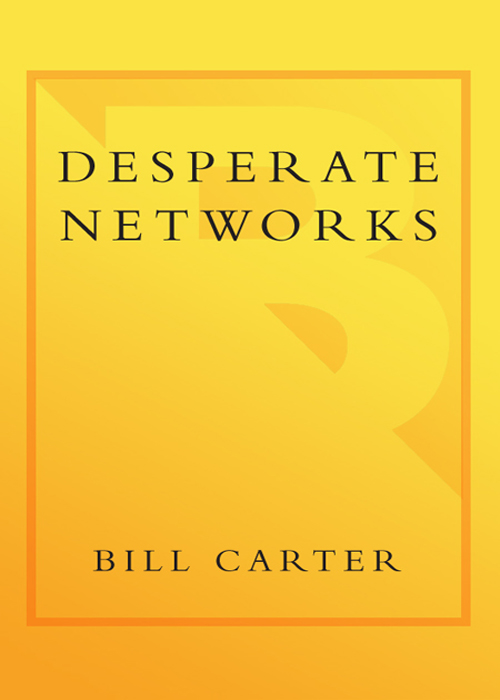
 CONTENTS
CONTENTS
To Caela and Dan;
I love you, Miss P. and Bub
ACKNOWLEDGMENTS
This is the third book I have written about the network television industry, and like the others it is almost completely the product of my own firsthand reporting. Over a period of about eighteen months I conducted interviews with many of the most important executives, producers, writers, stars, and talent agents in the businessa number of them on several occasions. I received almost unfailing cooperation from this long list of people. They all have my thanks.
In addition to my own reporting, I drew some information and occasional quotes from published articles in a number of newspapers and magazines, including the Washington Post, the Los Angeles Times, Time, Newsweek, The New Yorker, Newsday, New York magazine, the San Jose Mercury News, Advertising Age, Broadcasting and Cable, Variety, and the Hollywood Reporter. I also found some helpful material in several books, including Disney War, by James B. Stewart, and Jump In, by Mark Burnett. And an ABC interview with Teri Hatcher and the other stars of Desperate Housewives provided some useful information.
I also was able to mine a bit of my own previous work in the New York Times. I have been privileged to cover television since 1989 for the Times and I am always mindful of how valuable my association with the Times has been in my career. That has been especially true with this book, because my editors and supervisors at the paper kindly consented to allow me time to work on this project, and they have been consistently supportive throughout its completion. I want to thank several editors and executives, beginning with Bill Keller, Jill Abramson, and Bill Schmidt, and including Sam Sifton, Jim Schacter, and Steve Reddicliffe, for their patience and assistance.
At Doubleday, I want to thank Phyllis Grann for her unflagging interest in this book and her assistant, Karyn Marcus, for her agile help. My agent, Kathy Robbins, has always been my staunch advocate and never more so than in this effort.
A number of personal friends, professional colleagues, and family members made helpful contributions, from useful suggestions to words of support. I want to thank Phil and Denise Andrews, Frank and Diane Guercio, Gerry Uehlinger, Eric Mink, John Schwartz, Jack Steinberg, Fred Conrad, Maureen Dowd, Alessandra Stanley, Dinitia Smith, Lorne Manly, Lawrie Mifflin, Karin Davison, Peter Lassally, Richard Carter, Jr., Nikki Carter, Richard Carter III, John Carter, Alexandra Carter, Greg Lembrich, Catherine Carter ONeill and Dan ONeill, Bridget and Danny ONeill, and, as always, my parents, Richard and Teresa Carter.
A number of public relations professionals provided me with enormous help. I want to thank especially Carole Robinson of MTV Networks; Michael Mand of the Creative Artists Agency; Chris Ender and Gil Schwartz of CBS; Kevin Brockman and Jeffrey Schneider of ABC; Joe Earley and Scott Grogin of the Fox Broadcasting Company; Rebecca Marks, Kathy Kelly-Brown, Anna Perez, Allison Gollust, Barbara Levin, and Jeff DeRome of NBC; Steven Melnick of Twentieth Century Fox Television; Sharan Magnuson of Warner Brothers Television; Paula Askanas of Sony Pictures Television; and Jim Dowd of the Dowd Agency.
Many people offered recollections and comments and asked not to be named, but I want all of them to know how much I appreciate their contributions.
I wish I could thank everyone who generously consented to formal interviews, but that would fill pages. I do need to acknowledge several people who provided crucial stories, details, and information.
On the agency side, I want to thank especially Rick Rosen at Endeavor and Alan Berger and Lee Gabler at CAA for their invaluable insights.
From the studios, Peter Roth of Warner Brothers was, as always, wonderfully generous to me.
From the production side, Marc Cherry tells his own tale almost as well as he does those of Susan, Bree, Lynette, and Gabrielle. It was a privilege to share it. Mark Burnett has been available, open, and helpful to me since the day I met him five years ago, and it was no different during this project. I appreciate it greatly. Thanks also to Conrad Riggs.
Thom Sherman started out at ABC but wound up on the production side with Lost. I appreciate how willingly he shared with me the details of his personal adventure. Thanks as well to Julie McNamara and Heather Kadin.
Ben Silverman was good enough to clue me in to the emerging trend of reality television five years ago, and he has remained, now as executive producer of The Office, a reliable and enthusiastic resource.
In the area known in television as talent, I want especially to mention Donald Trump, who loves talking television and real estate, and Simon Cowell, who loves talking television and music. Thanks to both for talking so much with me.
I also want to express special appreciation to Conan OBrien.
From news, I want to acknowledge the generous contribution of Dan Rather.
From Fox, I first want to thank Mike Darnell, one of the most fascinating and fun people to talk to about television that I have met in the business. Peter Liguori, Gail Berman, and Sandy Grushow all supplied great material. Preston Beckman has been at the television game for many years at two networks and has a store of tales, insights, and theories to prove it. I want to thank him for sharing so many of them.
From ABC, Steve McPherson totally lived up to his reputation for being a straight-shooting, insightful, and smart executive, and I am grateful to him. David Westin had one of the toughest years any executive could have but was open and generous to me in recounting it.
Susan Lyne has moved on from ABC to Martha Stewart Living Omnimedia, but she remains sharp, perceptive, and insightful about television and kindly shared all those qualities with me.
At NBC, Bob Wright has for two decades been accessible and generous to me, and he was once again with this project. I am deeply grateful to him. Randy Falco also kindly shared his time and thoughts with me. Marc Graboff had roles in so many of the events in this tale that he was invaluable me. Ghen Maynard has since left the network, but he was exceptionally helpful and I thank him. Kevin Reilly came to NBC at a testing time and had enormous demands on him, but he was extraordinarily open and helpful throughout. Dick Ebersol has been in my Rolodex for almost thirty years, and no one has ever been easier or more fun for me to talk to.
Jeff Zucker has been among the best stories for me to cover in the past fifteen years. I first met him when he was an up-and-coming young producer at the Today show. I have followedand chronicledhis meteoric career steps ever since. But as he moved up he never changed at all in his willingness to talk with me enthusiastically about the state of television as he saw it. He was just as open and engaging throughout the process of this book, and I deeply appreciate it.
At CBS, Kelly Kahl is one the sharpest young executives in television, and I benefited greatly from his recollections. Andrew Heyward gave me a thoughtful interview from the perspective of CBS News. I want to thank Nina Tassler for being such a terrific storyteller and David Poltrack for being so insightful from the research side.
Next page

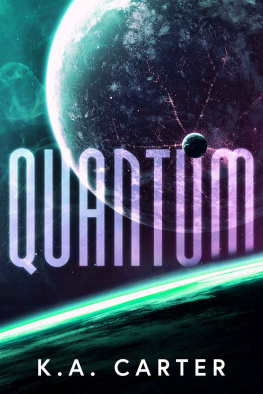
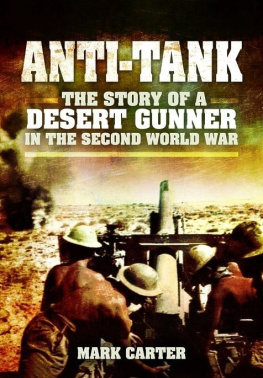





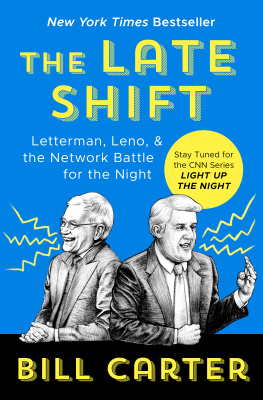
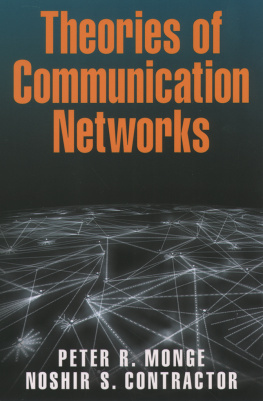
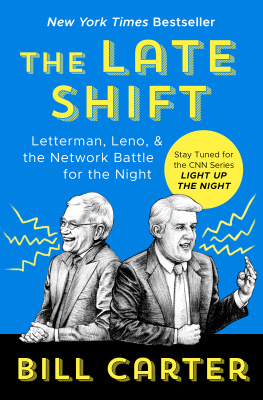
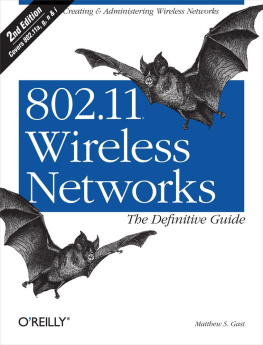
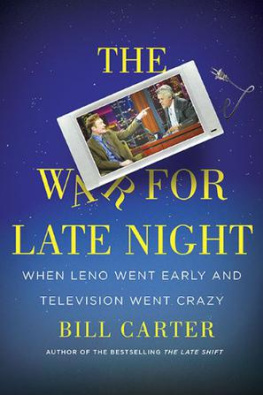


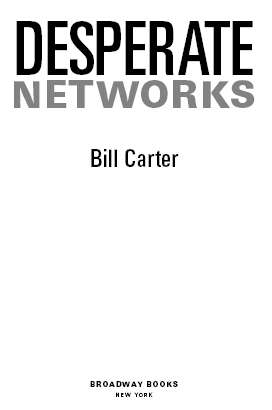
 CONTENTS
CONTENTS